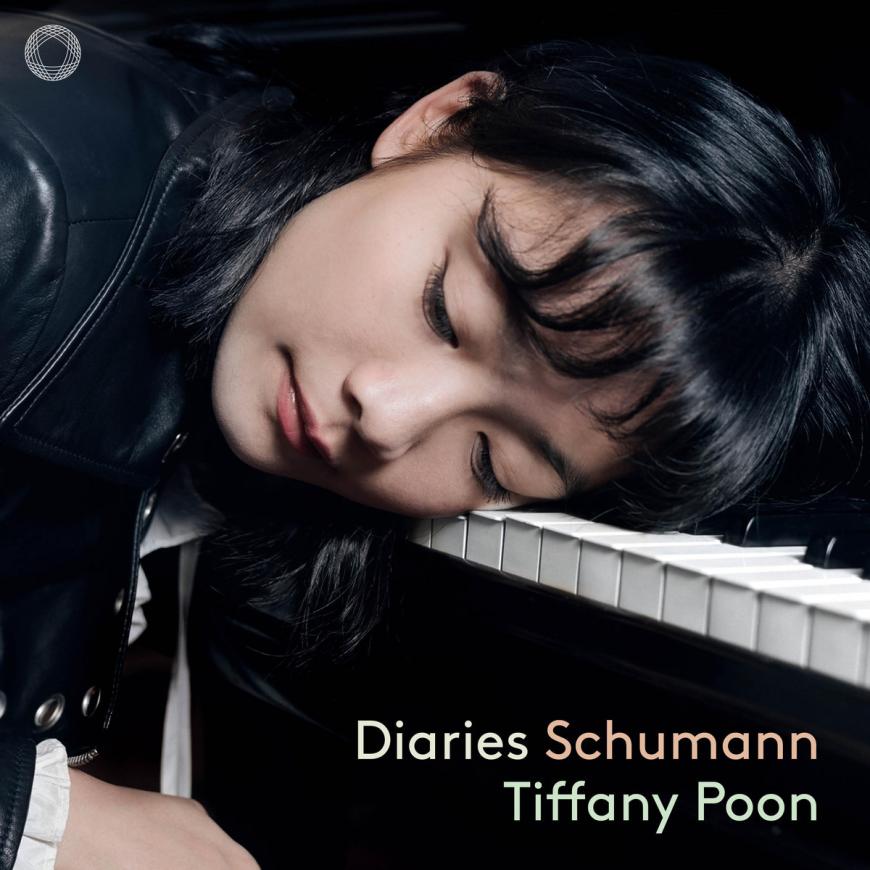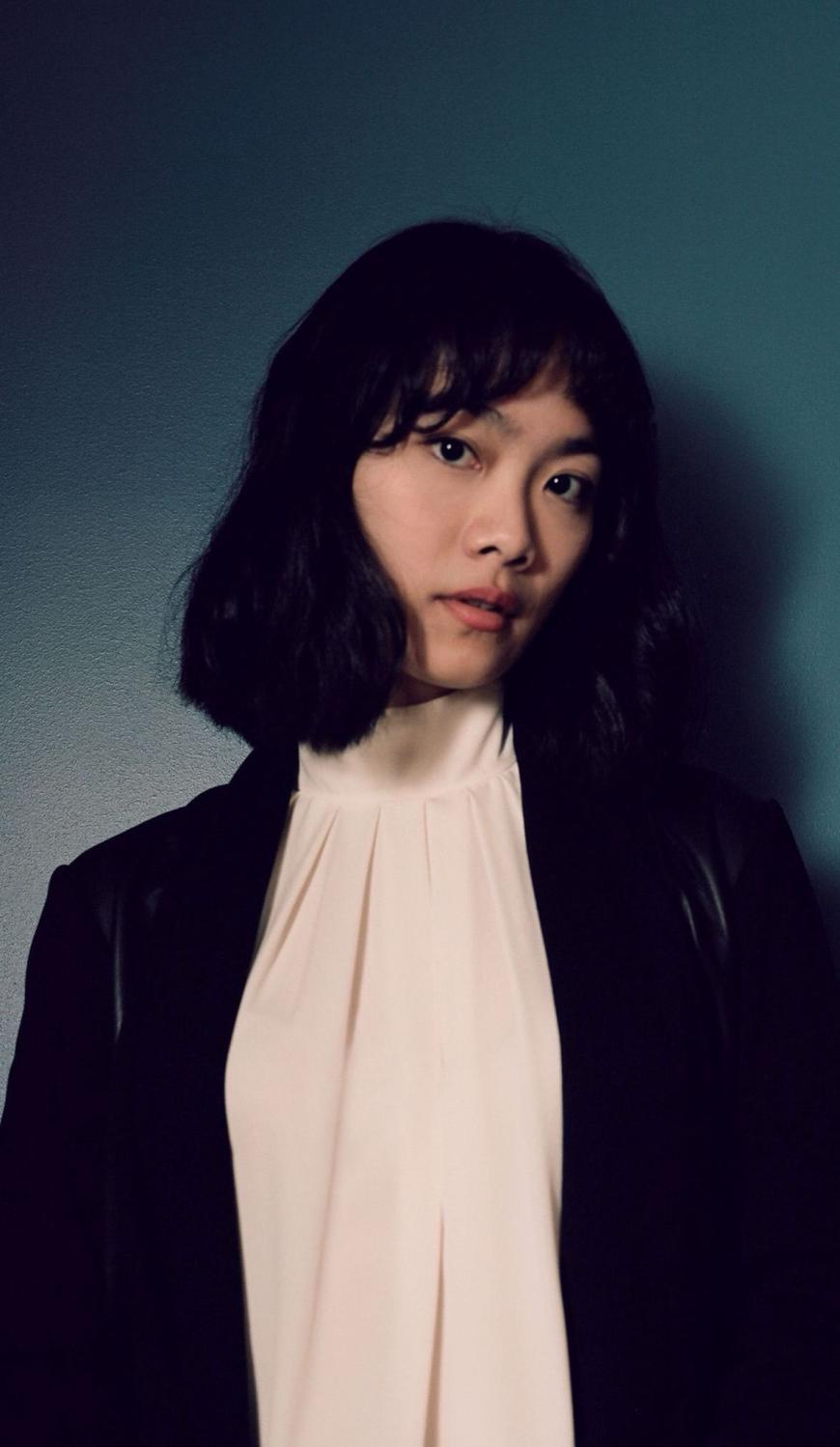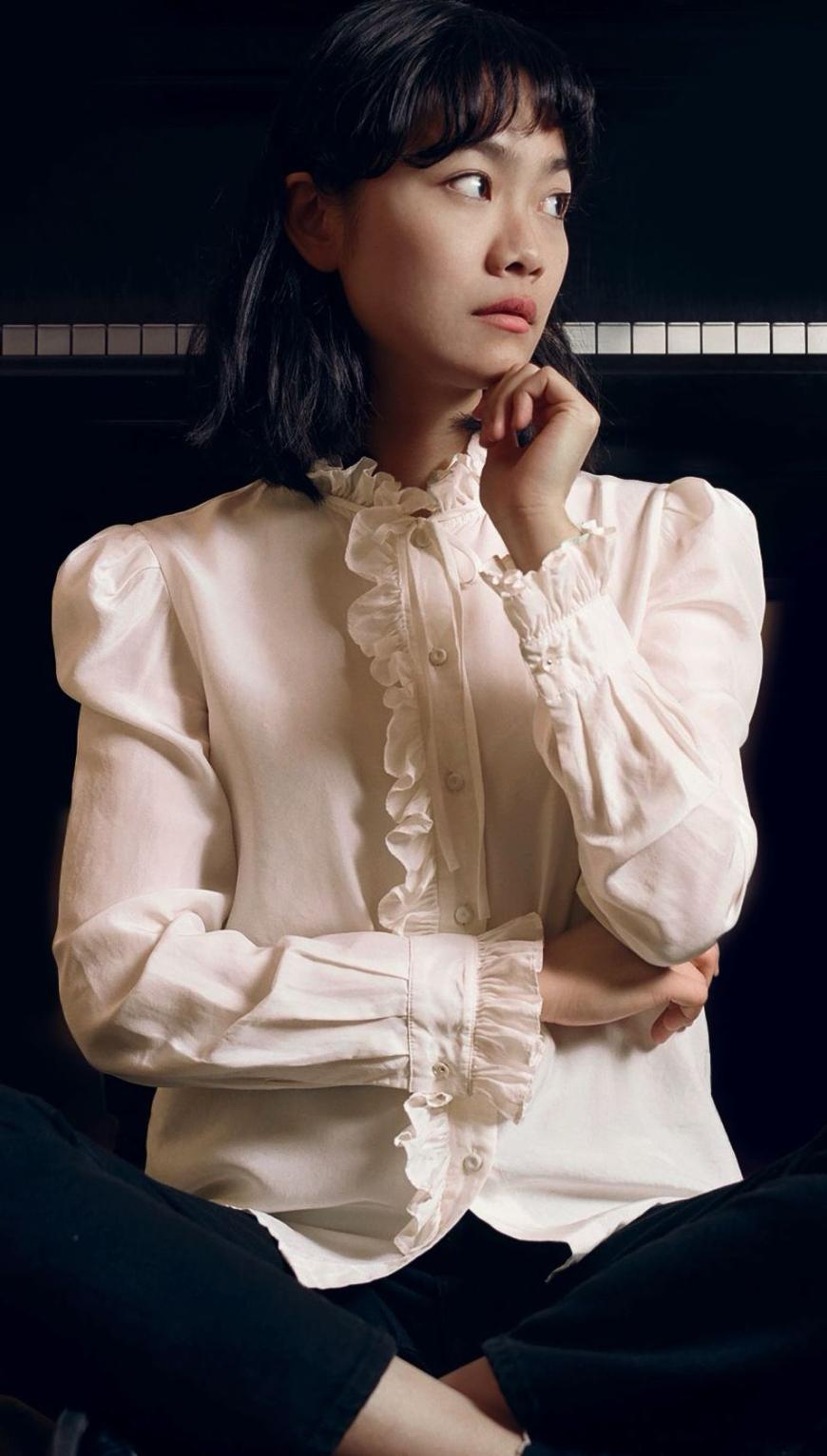
New York City-based pianist Tiffany Poon sometimes likens herself to a food content creator.
This hypothetical chef is great at what he or she does, or so you’re told, and the food being prepared certainly looks delicious in photos or videos. But how would you know that without having tasted it yourself?
Poon, too, has spent an inordinate amount of time documenting her artistic process — yes, even the less glamorous parts of being a musician, like drilling the same tricky passage in Sergei Rachmaninoff’s Third Piano Concerto over and over and over. Today, day-in-the-life-of-a-musician-at-so-and-so-conservatory videos are aplenty online, but in 2017, when Poon, then a senior in the Columbia-Juilliard Program, began making them, she was ahead of the curve.
“Learned to Play Harpsichord 2 Hours Before Performing,” one is titled, with 900,000 views. “Upgrade! Picking a New Steinway Model B Grand Piano,” reads another, with over 500,000 views. In the thumbnail of her vlog “Practicing Chopin - 10 Days Till Concert,” she’s staring at her music stand with an elbow propped on the keyboard, seeming quite exasperated. That one’s also been viewed more than 500,000 times. (If you’re curious, here’s a playlist of more than 150 vlogs Poon recorded between 2017 and 2021.) The videos have clearly struck a chord with viewers and have helped her build a YouTube subscriber base comparable in size to that of star violinist Ray Chen.
It’s time for her to share some actual food, not just the behind-the-scenes piano content she’s known for online, Poon told SF Classical Voice. Earlier this month, she released her first solo album as an adult, Diaries: Schumann, on the Pentatone label. (Her debut album, Natural Beauty, was recorded when she was a teenager.)
Bay Area audiences will also have an opportunity to taste some of that metaphorical food later this month, when Poon returns to Herbst Theatre for a recital on Feb. 25 for Chamber Music San Francisco. On the program are Robert Schumann’s Kinderszenen, Claude Debussy’s Children’s Corner, Preludes and Fugues Nos. 1 and 2 from Book 1 of J.S. Bach’s The Well-Tempered Clavier, and Frédéric Chopin’s Preludes, Op. 28.
SF Classical Voice caught up with Poon in late January over Zoom. Topics covered ranged from what it was like for her to move from Hong Kong to the U.S. at age 9 to how a college philosophy class got her to start sharing her practice sessions online. Plus, find out why she’s launching a new app.
Your album Diaries: Schumann comes out on Feb. 9. How are you feeling?
I’m tired. No, I’m excited — that’s the correct answer. … I had the idea to do the album back in 2020. It came out of an existential crisis, and Pentatone has been very nice and branded it an existential quest instead of a crisis. This album came out of me questioning what I want to do with my career, what I stand for as an artist, and thinking about myself as a person. Why do I have certain tendencies and characteristics? … Why am I like this? And so I was doing that while reading a lot of books during the pandemic, and ultimately it became this album.

Do you remember what you were reading?
I’ve been a fan of German Romantic writers and philosophers for a while. Over the pandemic I was reading Goethe. I was also reading more into Schumann’s journals. He had a journal for new music and wrote a lot of critical reviews, a lot of them under pseudonyms, with his artist friends, like [Felix] Mendelssohn and Clara Schumann and a couple others. They brought a lot of pieces to my ears that I didn’t know existed before.
I learned a lot about [Schumann’s] aesthetics, his philosophies, and I really thought I aligned with what he stood for, which was very much anti-sensationalism. There was a new wave of virtuosity around his time, which he was very much against, so he would call out pieces that were too frivolous, uninteresting, or bland, and he would praise ones that were very organic feeling, had interesting ideas, or just felt fresh. So I learned about what he valued and found that I shared similar values.
What does it mean for you to be an anti-sensationalist?
There is a lot of sensationalism — I call it MSG — especially in a very fast-paced, social media-centered world. You know, clickbait content. … I think there are a lot of philistines, as Schumann would call them. He has his [composition] Davidsbündlertänze, which is part of my album, and part of that was about fighting against these philistines, which are people who pretend they know what good music is and still hold the positions of reviewers and critics. The epitome of a philistine for him was critics who were mad at [Franz] Liszt for accepting flowers after a concert — they weren’t judging the music on its own.
When I first started my process with this album and [was] just learning more about Schumann, I was definitely even more angsty. I think now I’ve mellowed out, I’ve stopped fighting it as much, and I just do what I do and let it be as people would like to view it.

Did you go in knowing that you wanted your first solo album as an adult to be focused solely on Schumann?
Yes, he is one of my favorite composers — maybe my current favorite composer. I hesitate to say this because a lot of people know me for playing Chopin’s pieces. I think I’ve always gravitated toward Schumann in darker times but also in general, [since] my teenage years in high school. I had a lot of fun exploring his characters and the fact that the mood switches so quickly and the constant duality within his music. I connected with that subconsciously and consciously.
I come from Hong Kong, and I was living in New York, speaking a different language. I was a normal person in school, but I played piano, so I didn’t do a lot of normal kid things. So this duality always existed in me. There’s the online version of me now, but there’s [also] the offline me, in bed staring at the ceiling, that version, which I’m not really sharing on the internet. I think there are different sides to everyone, and I like that Schumann really embraces that.
You mention that the album concept came to you during the pandemic and that you tend to gravitate toward Schumann’s music in darker times. Where were you — mentally — back then?
I had a lot of existential questions. At that time, everybody was setting up at home, wondering what their lives [would be like now]. That, coupled with the fact that a lot of people were watching my videos on YouTube at the time — I felt like there was this imbalance. I think of it like, imagine there’s a chef that you keep watching on the internet. You see him preparing, chopping the ingredients, and it looks like it’s going to be good, and he’s putting a lot of details into preparing it, but you never actually get to see the end, and you never actually get to taste it. Yet, this chef is supposed to be a good chef. How are you supposed to know that if you’ve never tasted [the food]?
I felt like that during the pandemic, when there was so much emphasis and attention on my behind-the-scenes videos, because that was literally all that was happening and I didn’t really have an end product to show people. Am I a pianist, or am I a chef that looks like he’s cooking but doesn’t actually know how to cook? So that’s how it started. My choosing Schumann was to make a bold statement in terms of how I want to introduce myself.
Can you give us some insight into your Feb. 25 program?
The title I gave this program was “Sketches of Life.” … I unfortunately can’t play my entire album, but I wanted to have Schumann’s Kinderszenen as the anchor. Then I was trying to do something that’s an extension of my album concept in terms of looking back, forward, who are we, who do we want to become, that kind of existential discussion — not so much a crisis anymore. I started to look at pieces I played when I was kid, and one was, of course, Debussy’s Children’s Corner, a set of pieces that’s about childhood and that Debussy actually dedicated to his daughter. “The Little Shepherd” is one of the pieces I learned when I was 6, so I thought that would be nice for the first half.
For the second half I wanted to kind of set the stage — pun intended — with a blank canvas. I’ll be playing Bach’s Preludes and Fugues in C Major and C Minor just to reset everybody’s minds before the big set of the second half: the Chopin Preludes, which harken back to the beginning of my piano journey. I auditioned for Juilliard’s pre-college with Chopin’s Preludes, Op. 28, when I was 7. That basically changed my life, moving halfway across the world.

You’ve amassed an impressive social media following, especially on YouTube, where you have more than 300,000 subscribers. Why did you start vlogging?
I was studying philosophy at Columbia, and it started this dialectic in my mind about what our relationship with objects is nowadays. In junior year I was taking a class on the place of the human and our relationship to art and objects and how technology changes that — like, for example, when’s the last time you thought about the person who made your phone? Whereas way back when, you’d make a clay pot from the ground and give it to someone.
I felt like there was this dehumanizing aspect of classical music because the people that wrote a lot of the core music are dead. So how do you connect with the music? With pop, pop artists are telling you what’s happening through the lyrics, and they’re there. You can think about their personal lives or see them and connect with them in person. I was having this back-and-forth, thinking, “Is there anything that we can do now with technology that enhances that human aspect more in classical music?” At the same time, [I had experienced] 10 years of people misunderstanding me as a person, thinking that my parents were abusive Chinese parents and that I had no childhood, that I was just this abused robot. So that felt dehumanizing as a person.
I was watching a lot of vlogs as a pastime around junior and senior year, and so then it became very natural. What if I showed up as a human experimenting with classical music? Would that make classical music more human? This was a long time ago, but now everybody does it, so I guess it works. It’s been great to connect with people and hear from them that they got into the piano because they were watching my videos or they got into a certain composer because they heard me play [that music] in my videos.
These days, it feels like young musicians are being pushed to build online presences and make videos about themselves so they can promote themselves. Do you think we’re headed in the right direction?
There’s a lot that is interesting for the audience to experience before a concert in terms of process. I would love to know the process of a Michelin-starred meal, for example. I think the fact that there’s been a lot of people following me from my behind-the-scenes videos, and the fact that all the orchestras are [now] doing it, means people are catching on to the value of [sharing like this] and making the experience more casual and wholesome. You see the artist as a person rather than something incredibly closed.
I think there’s a danger of sensationalism, though. There are certain rules of the game with social media. If you’re on Instagram Reels or TikTok, you’re literally told that in the first three seconds [of a video], you have to catch someone’s attention. So, of course, someone’s going to make a funny face or do something flashy to catch that attention. That’s why I’ve been working on my own app, Do-Re-Mi Classical, which is coming soon. An audience can learn so much about the music before the concert from the musician themselves, and currently there’s no space for that — you have to jump around everywhere and face this pressure to style your videos in a certain way to fit the algorithm.
What will the app look like?
Earlier you were asking me about the [social media] content of musicians and whether that’s good for classical music. A personal problem I have is whenever I travel, I don’t know everything that’s happening there in the classical music sphere. I end up having to Google around, and it’s very cumbersome. At least I know the words “philharmonic” or “symphony orchestra” and can guess my way around.
Basically, I want to have a platform that makes classical music as easy as do-re-mi so that anywhere in the world, you can find all the concerts that you can go to [and] information about the artists. And when the artists post behind-the-scenes content, that’ll be linked directly to the concert they’re talking about — no more “link in bio” stuff. It’s all seamless so that the experience can be easier and more approachable.




